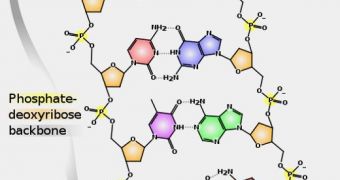In a trial that could set a questionable precedent, an Italian court reduced the sentence it gave to a convicted killer, after taking into account behavioral genetics. That is to say, the judges kept in mind the fact that the individual had a number of genes that have been associated with violent behavior, and decided that this merited reducing the time the killer has to spend in jail by a full year.
Some scientists, however, doubt that the decision was based on accurate scientific evidence, saying that behavioral genetics is only a new field of research, where a lot of work is still to be done. In other words, the judges were premature in their sentencing, Nature News reports.
On March 10, 2007, Abdelmalek Bayout, an Algerian citizen, killed Walter Felipe Novoa Perez, a Colombian individual living in Italy, over an insult the victim allegedly brought to him. During the first trials, three independent psychiatric assessments were asked by the judge, Paolo Alessio Verni, in order to determine if Bayout was sane of mind. The killer's lawyer, Tania Cattarossi, had argued that her client was mentally ill at the time of the killings. Verni took into account Bayout's illness, and sentenced him to 9 years and 2 months, which is some 3 years less than what the Algerian would have received, had he been deemed sane of mind.
In May 2009, a new trial began, and the new judge, Pier Valerio Reinotti, from the Court of Appeal in Trieste, asked for a new, independent evaluation. University of Pisa molecular neuroscientist Pietro Pietrini, and University of Padova cognitive neuroscientist Giuseppe Sartori were in charge of the new study. They subjected Bayout to brain-imaging scans, and determined that he convict had five abnormally expressed genes in his body. All of these genes have been linked with violent behavior.
“There's increasing evidence that some genes together with a particular environmental insult may predispose people to certain behavior,” wrote Pietrini in the team's report to Judge Reinotti. The justice representative then proceeded to shave another year off the sentence, saying that he believes Bayout's genes “would make him particularly aggressive in stressful situations.”
Not everyone is thrilled with the new decision, however. There are those who argue that the influence of such abnormally expressed genes has not yet been accurately analyzed, and as such cannot constitute evidence in a court of law. “We don't know how the whole genome functions and the [possible] protective effects of other genes,” adds University TOR Verg forensic scientist and geneticist Giuseppe Novelli.

 14 DAY TRIAL //
14 DAY TRIAL //